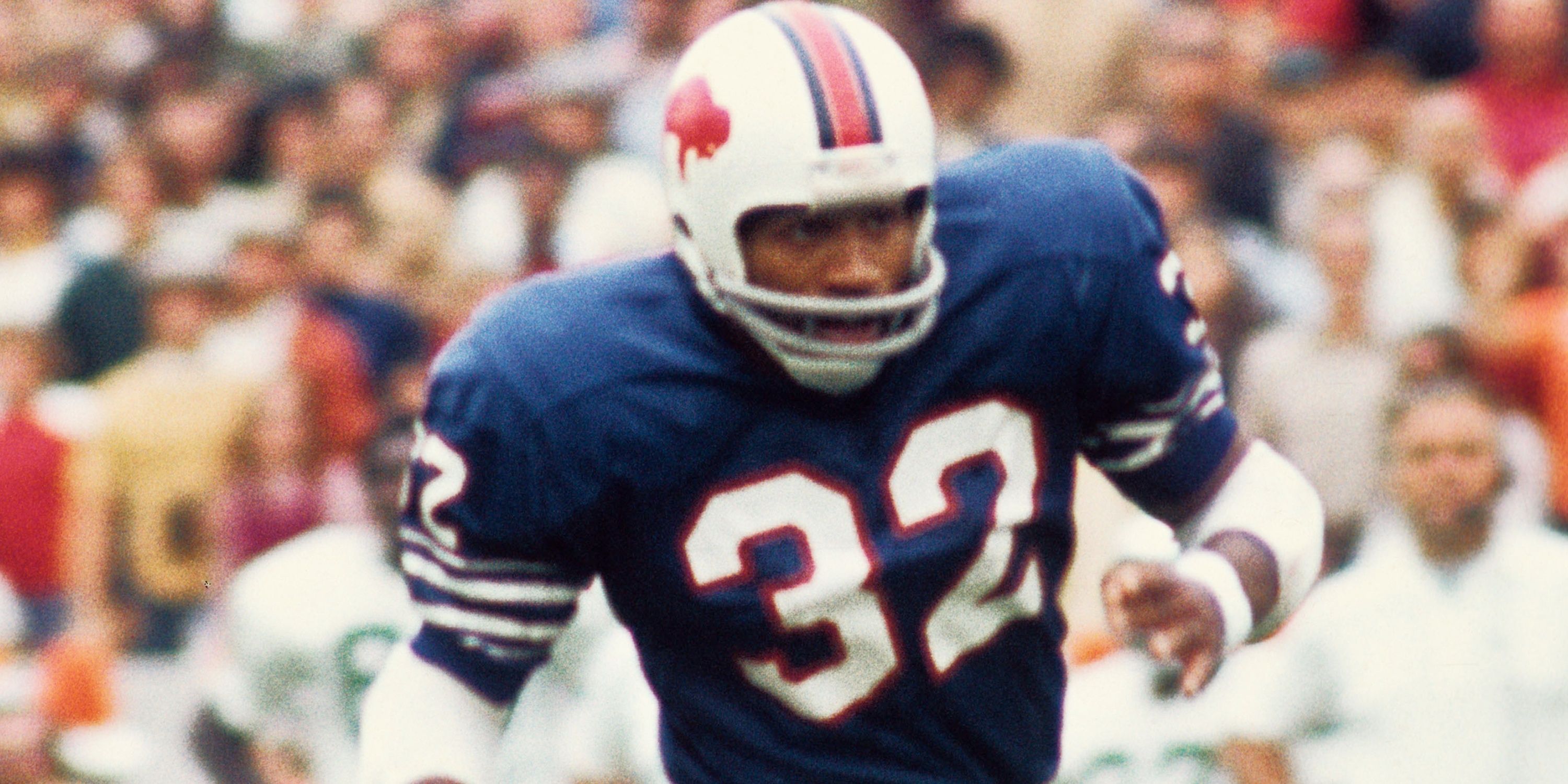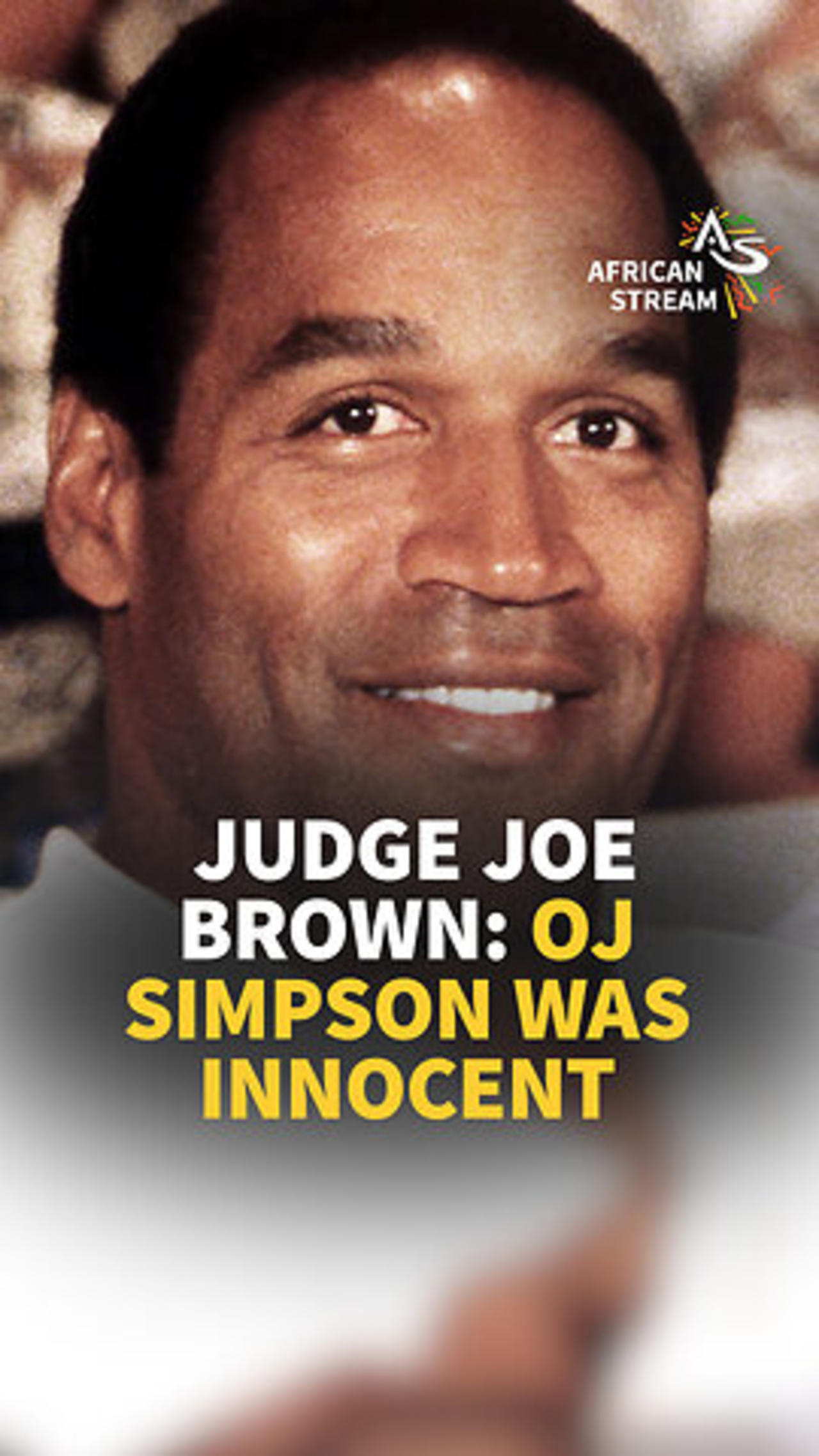The Gavel's Echo: Exploring The Legacy Of O.J. Simpson Judge Lance Ito
When we think about the O.J. Simpson trial, a few faces naturally come to mind, and one of the most prominent is that of the presiding judge. This person, the one who oversaw the legal proceedings that gripped a nation, was Judge Lance Ito. His role in what became a truly historic event in American legal history is, in a way, quite unforgettable, and still sparks conversation even today, nearly three decades after the trial began.
The trial of O.J. Simpson for murder was, to put it mildly, a massive spectacle. It was a moment when the country paused, watching as legal arguments unfolded, and the fate of a famous figure hung in the balance. Judge Ito, a man then perhaps not widely known outside legal circles, suddenly found himself at the very center of this whirlwind, a figure of immense public interest, really.
This article will take a closer look at Judge Lance Ito, the man often simply called the "O.J. Simpson judge." We'll explore his background, his key actions during that monumental trial, and the lasting impact of his decisions, particularly the choice to allow television cameras into the courtroom. It's a story that, you know, still resonates with many people.
- Angel Bites Fangs
- Short Hairstyles For Fine Hair For Men
- Andy Garcia Wife Wedding
- Black Slave Last Names
- Anna Lynn
Table of Contents
- Biography of Lance Ito
- The O.J. Simpson Trial: A Nation Watches
- Judge Ito's Background and Public Perception
- Lasting Reflections on a Historic Trial
- Frequently Asked Questions About the O.J. Simpson Judge
Biography of Lance Ito
Lance Allan Ito, born on August 2, 1950, is an American retired judge. He became, in a way, a household name because of one particular case. His professional journey led him to preside over what many consider one of the most talked-about criminal trials in modern history, that of O.J. Simpson.
Before taking on such a high-profile role, Ito had a career that involved working as a Los Angeles District Attorney. This background, you know, gave him experience on the other side of the courtroom, which is quite interesting to think about. He served as a judge in the Los Angeles County Superior Court, which is where the Simpson trial took place.
Here are some personal details and biographical information about Judge Lance Ito:
- Does Red Bull Have Sperm
- Revenge Cheating Memes
- Turning 30 Jokes
- Yannick Bisson Actor
- Are Dreka And Kevin Still Together
| Full Name | Lance Allan Ito |
| Born | August 2, 1950 |
| Nationality | American |
| Occupation | Retired Judge |
| Known For | Presiding over the O.J. Simpson murder trial |
| Previous Role | Los Angeles District Attorney |
His presence on the bench during the Simpson trial was, in some respects, constant. People saw him day in and day out, guiding the proceedings, making decisions that shaped how the case moved forward. It was, arguably, a very demanding position.
The O.J. Simpson Trial: A Nation Watches
The O.J. Simpson murder trial, which started in early 1995, really became a focal point for so many people. It wasn't just a legal case; it was a cultural moment, almost like a shared experience for millions. Judge Lance Ito was, basically, the person at the helm of this incredibly watched event.
This trial, held in the Los Angeles County Superior Court, captured the attention of people far beyond the usual legal enthusiasts. It was a daily topic of conversation, and the judge's actions were constantly scrutinized. You know, it was a lot for one person to handle.
Arraignment and the Start of Proceedings
O.J. Simpson was formally brought before the court, or arraigned, on July 22, 1994. At this point, he entered a plea of "not guilty," setting the stage for the long and complex legal battle that would follow. Judge Ito was there from the beginning, really, overseeing these initial steps.
The actual trial itself kicked off on January 24, 1995. With Lance Ito as the presiding judge, the courtroom became a stage where legal teams presented their arguments, witnesses shared their stories, and evidence was laid out for all to see. It was a process that, in a way, unfolded slowly, day by day.
For months, the trial continued, with every twist and turn being reported widely. The judge's role was to ensure fairness, manage the flow of information, and make rulings on various legal matters. This was, pretty much, a continuous challenge given the intense scrutiny.
The Televised Courtroom: A Controversial Decision
One of Judge Ito's most significant, and perhaps most debated, decisions was to permit the trial to be televised. This choice meant that, for the first time in such a high-profile criminal case, millions of people could tune in and watch the proceedings unfold live. It was, in fact, a truly groundbreaking move.
This decision, made in 1995, drew strong reactions. Some people felt it was a great step for transparency, letting the public see justice at work. Others, however, viewed it quite differently. There was a feeling that televising the trial might turn serious legal proceedings into something more akin to entertainment, which is not what courtrooms are for, really.
In fact, some legal observers have since called this decision "one of the worst moves in American judicial history." The argument was that it potentially changed the behavior of those involved, from lawyers to witnesses, who were now performing for a massive audience. Judge Ito, it was suggested, in a way, made a "bad idea worse" by allowing such widespread broadcast.
The presence of cameras, you know, added a whole new layer of pressure and complexity to an already incredibly difficult situation. It meant that every gesture, every word, every piece of evidence was seen and discussed by the public, sometimes in real-time. This level of public exposure was, basically, unprecedented.
The impact of this decision on the trial's atmosphere and its ultimate perception is still discussed today. It certainly made the O.J. Simpson trial a unique event in legal history, one that, to be honest, set a precedent for how future high-profile cases might be handled in the media age.
Judge Ito's Background and Public Perception
Judge Lance Ito's background became a topic of interest and, sometimes, speculation during the trial. Before his time on the bench, he served as a Los Angeles District Attorney. This experience, you know, gave him insights into the prosecution's side of things, which some people found noteworthy.
Another point that sparked discussion was his personal life. At the time of the O.J. Simpson trial, Judge Ito was married to a top official within the Los Angeles Police Department (LAPD). This connection, to be honest, led to some questions about potential conflicts of interest, given the LAPD's significant role in the evidence collection and investigation for the case.
The public's perception of Judge Ito during the trial was, to say the least, varied. For many, he was the calm, steady figure trying to keep order in a chaotic situation. For others, particularly those who disagreed with his decisions, he became a symbol of what they felt was going wrong with the trial. It was, in a way, a tough spot to be in.
The constant media attention meant that Judge Ito's every move, his expressions, and his rulings were analyzed and discussed endlessly on television and in newspapers. This intense scrutiny is, you know, something very few judges ever experience. He became, almost, a character in a national drama.
Despite the pressures, he continued to preside over the proceedings, aiming to guide the case towards a resolution. His efforts to manage the courtroom, especially with the cameras rolling, were, pretty much, a daily challenge. Learn more about on our site.
Lasting Reflections on a Historic Trial
The O.J. Simpson trial, with Judge Lance Ito at its center, remains a defining moment in American legal and cultural history. Nearly 30 years have passed since the trial began in 1995, and its impact still echoes. The discussions it started about race, justice, and the media's role in court proceedings continue to this day, really.
The verdict, when it finally came, was watched by an astonishing number of people. It was, in a way, a moment that millions had anticipated for months. The collective holding of breath as the decision was read out is something many people who were alive at the time can still recall, very vividly.
Judge Ito's role in allowing the trial to be televised forever changed how high-profile cases are viewed by the public. It opened up the courtroom to a degree never before seen, creating a precedent that other judges and legal systems have since grappled with. It's a choice that, you know, still generates conversation among legal experts and the public alike.
While the focus of the civil suit against O.J. Simpson later saw a different judge take firm control, even forbidding attorneys and witnesses from discussing the case, the original criminal trial under Judge Ito's watch set the stage for how the public would remember the entire saga. It was, in some respects, a truly singular event.
The story of the "O.J. Simpson judge" is a reminder of how one person's decisions can shape not just a legal outcome, but also a national conversation. It shows how, sometimes, the person in charge of a case becomes just as much a part of the story as the accused or the victims. This trial, and Judge Ito's part in it, will, basically, always be a significant piece of our collective memory.
Frequently Asked Questions About the O.J. Simpson Judge
People often have questions about the key figures in such a famous trial. Here are some common inquiries about the judge who presided over the O.J. Simpson case.
Who was the judge in the O.J. Simpson trial?
The judge who presided over the criminal trial for the O.J. Simpson murder case was Lance Allan Ito. He was, at the time, a judge with the Los Angeles County Superior Court. His name is, in fact, often associated directly with that particular legal event, which is pretty much why he's so well-remembered.
Why was Judge Lance Ito controversial?
Judge Lance Ito's most notable controversial decision was allowing the O.J. Simpson murder trial to be televised. This choice, made in 1995, meant that the entire proceedings were broadcast live to millions of viewers. Many felt this turned the serious legal process into a public spectacle, potentially influencing the behavior of those involved. It was, you know, a very big deal at the time.
What was Judge Lance Ito's background before the O.J. Simpson trial?
Before becoming the "O.J. Simpson judge," Lance Ito had a career as a Los Angeles District Attorney. This experience gave him a perspective from the prosecution's side of the legal system. Additionally, at the time of the Simpson trial, he was married to a top official in the LAPD, which, in a way, led to some public discussion and speculation about potential influences, though that's just a bit of context.
The impact of his decisions, especially the one to televise the proceedings, is something that continues to be analyzed by legal scholars and the public. It certainly changed how high-profile cases are viewed and discussed. You can find more details about the broader legal implications of such cases by checking out a well-known legal archive or, you know, just by looking up court history.
The story of Judge Lance Ito, the man who guided the O.J. Simpson trial through its many twists and turns, is a truly compelling one. His role was, basically, central to a moment that captivated a nation, and his decisions continue to spark discussion about the intersection of law, media, and public interest. It's a part of history that, in some respects, still feels very present.
- Darkness Names
- Paul Diesel
- Brothers Keeper Tv Show
- Is Brittney Griner A Man Or Woman
- Www Solowife Com

O.J. Simpson Still Holds Three NFL Records

OJ Simpson Dead – GrrrGraphics

JUDGE JOE BROWN: OJ SIMPSON WAS INNOCENT - One News Page VIDEO